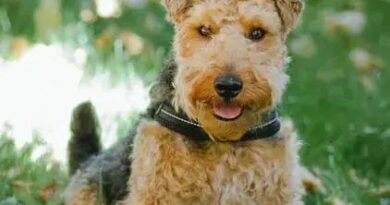What is junior dog care
Understanding Junior Dog Care
Junior dog care refers to the specialized approach to nurturing and managing the health and well-being of young dogs, typically those in their puppy stage up to around 18 months old. This period is crucial for a dog’s development, as it encompasses significant physical, emotional, and social growth. Proper care during this stage sets the foundation for a well-adjusted adult dog, making it essential for pet owners to understand the unique needs of their junior canines.
Nutrition for Junior Dogs
One of the most critical aspects of junior dog care is providing a balanced and nutritious diet. Puppies require a diet rich in proteins, fats, vitamins, and minerals to support their rapid growth and energy needs. It’s important to choose high-quality puppy food that is specifically formulated for their developmental stage. Regular feeding schedules and portion control are also vital to prevent obesity and ensure healthy growth.
Socialization and Training
Socialization is another key component of junior dog care. Exposing young dogs to various environments, people, and other animals helps them develop confidence and reduces the likelihood of behavioral issues later in life. Training should begin early, focusing on basic commands and positive reinforcement techniques. This not only strengthens the bond between the owner and the dog but also promotes good behavior and obedience.
Health Care and Veterinary Visits
Regular veterinary check-ups are essential in junior dog care. Puppies need a series of vaccinations to protect them from common diseases, as well as routine health screenings to monitor their growth and development. Discussing spaying or neutering options with a veterinarian is also important during this stage, as it can impact the dog’s health and behavior in the long run.
Exercise and Physical Activity
Physical activity is crucial for junior dogs to maintain a healthy weight and develop strong muscles and bones. Engaging in regular playtime, walks, and interactive games not only keeps them physically fit but also stimulates their minds. It’s important to tailor exercise routines to the dog’s breed, size, and energy level to ensure they are both safe and enjoyable.
Grooming Needs
Grooming is an integral part of junior dog care, as it helps maintain the dog’s coat and skin health. Depending on the breed, puppies may require regular brushing, bathing, and nail trimming. Introducing grooming routines early on can help the dog become accustomed to the process, making it easier for both the owner and the pet as they grow older.
Creating a Safe Environment
A safe and comfortable living environment is essential for junior dogs. This includes providing a designated sleeping area, safe toys, and a secure space to play. Pet-proofing the home by removing hazardous items and ensuring that the dog cannot access dangerous areas is crucial for their safety and well-being.
Understanding Behavioral Changes
As junior dogs grow, they may exhibit various behavioral changes due to hormonal shifts and developmental stages. Understanding these changes is vital for effective training and care. Owners should be patient and consistent, using positive reinforcement to guide their dogs through these transitions and help them develop into well-mannered adults.
Building a Strong Bond
Building a strong bond with a junior dog is fundamental to their development and overall happiness. Spending quality time together through play, training, and affection fosters trust and loyalty. Engaging in activities that both the owner and the dog enjoy can enhance this bond, leading to a fulfilling relationship that lasts a lifetime.



